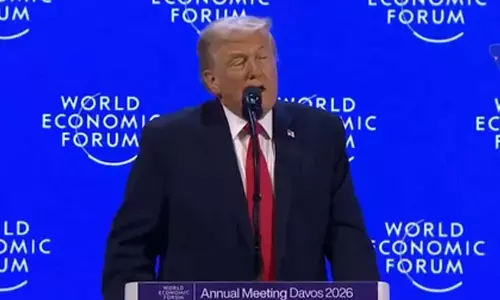Tata-Dassault fuselage deal will boost manufacturing in general

The signing of four Production Transfer Agreements by Dassault Aviation and Tata Advanced Systems Limited (TASL) to manufacture the Rafale fighter fuselage in India is a big fillip to not just defence production in the country but also manufacturing in general. The French plane-maker rightly said that it marks “a significant step forward in strengthening the country’s aerospace manufacturing capabilities and supporting global supply chains.”
The fuselage of an aircraft is its central body portion, excluding the engines, tail, and wings. It houses the cockpit, avionics, fuel, and payload—essentially serving as the backbone of the aircraft. In the case of Rafale, a multirole fighter jet renowned for its agility, advanced avionics, and combat effectiveness, manufacturing the fuselage involves high-precision engineering, advanced composites, and tight tolerances.
Bringing such a sophisticated process to Indian soil reflects the maturity of the country’s aerospace manufacturing environment and the trust global original equipment manufacturers (OEMs) are increasingly placing in Indian firms.
In recent years, numerous Indian companies have emerged as key players in the defence manufacturing sector, contributing to the country’s vision of self-reliance under the Atmanirbhar Bharat programme. Major public sector undertakings like Hindustan Aeronautics Limited, Bharat Electronics Limited, and Bharat Dynamics Limited have long been at the forefront of producing aircraft, radars, missiles, and other critical defence systems.
Alongside them, private sector giants such as TASL, Larsen & Toubro (L&T), Mahindra Defence Systems, and Bharat Forge have significantly expanded their footprint in defence production. These companies manufacture a wide range of equipment, including artillery systems, armoured vehicles, UAVs (unmanned aerial vehicles), and missile components.
Their growing capabilities are further boosted by partnerships with global defence firms, enabling technology transfer and joint ventures. This robust participation from both public and private sectors is crucial for reducing import dependence and building a strong, indigenous defence industrial base. The Dassault-TASL partnership is a testament to the vision of the Make in India initiative, which has been pushing for increased localisation in defence procurement. By transferring production capabilities to India, Dassault is enabling Indian companies to climb up the value chain—from low-end assembly to high-end design and production. The collaboration with TASL, a company already experienced in aerospace production, enhances India’s ability to build a complex, high-performance defence product and helps cultivate a local ecosystem of skilled workers, advanced suppliers, and engineering talent.
Furthermore, this move significantly reduces India’s reliance on imports for critical defence hardware, contributing to strategic autonomy. Over the decades, India has been one of the world’s largest arms importers. While importing advanced weapon systems has been necessary to meet immediate defence requirements, long-term sustainability lies in indigenisation.
The Rafale fuselage manufacturing agreement is, therefore, more than a business deal—it is a step toward building a sustainable and technologically advanced defence industrial base within India.
The economic implications of this development are equally profound. High-technology manufacturing generates employment across the value chain—from technicians and engineers to logistics and quality assurance personnel. The joint venture will not only create direct employment but also foster ancillary industries, leading to the development of an aerospace manufacturing cluster with potential spillover benefits to the civilian aviation sector.
The infrastructure and capabilities established through this programme can later be leveraged for commercial aerospace production, such as passenger aircraft components, thereby further integrating India into the global aerospace supply chain.














